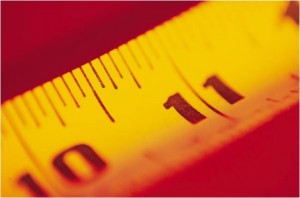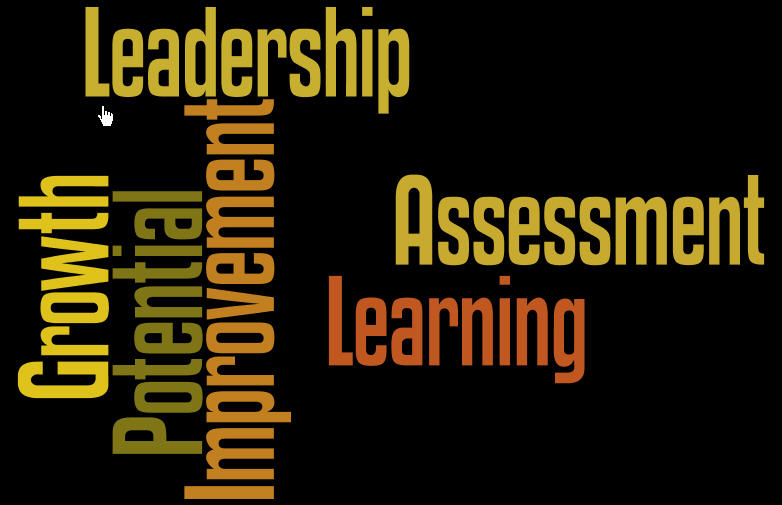How do you know if you’re an effective leader?
One way to find out is to take a leadership assessment. There are thousands of assessments on the market, so the challenge is finding the one that best fits your needs. Here is an overview of leadership assessments to help you make an informed choice.
What is a Leadership Assessment?
Also called “profiles”, “tools”, “questionnaires” or “tests”, a leadership assessment evaluates something about how you lead. That “something” varies depending on the assessment. Assessments are structured help you gauge one or more of the following:
Predictive – predicts the likelihood of how well you will perform against a set of pre-established criteria
Evaluative – determines how well you do a certain set of tasks; typically benchmarked against competencies
Psychological – measures your personality traits using a generally accepted theory of personality development
Developmental – identifies naturally preferred skills or behavioral tendencies, but doesn’t predict the potential for leadership success
As you can see, assessments vary in their purpose. Some are used for screening whether or not a job candidate will be successful in a leadership role. In this case, a predictive tool is typically used. Other times, a leadership assessment is used to help a person understand his or her strengths. A mix of psychological and/or developmental profile is the way to go.
Are Free Leadership Assessments Any Good?
There are lots of sites touting free leadership assessments on the internet. If you have absolutely no money to spend, by all means consider checking out a few freebies – they will give a place to start on developing your leadership skills. Do remember though, the adage “you get what you pay for”. If you are looking for depth and detailed analysis, you might need to go with a paid assessment.
What Should I Look For When Choosing an Assessment?
 Whether you’re choosing a free assessment or one that costs money – be sure the assessment was created using a scientifically acceptable research methodology. Two typical scientific measures for psychometric assessments are:
Whether you’re choosing a free assessment or one that costs money – be sure the assessment was created using a scientifically acceptable research methodology. Two typical scientific measures for psychometric assessments are:
- Validity – the degree to which a tool measures what it has been designed to measure.
- Reliability – does the tool measures in a way that is consistent and dependable?
If the assessment is presented as one that has been “researched for validity and reliability”, then you’re off to a good start.
Without turning this into a thesis on analytical statistics, let’s keep it simple. Look for the following:
- Does the tool have a link to its research methodology on its webpage? If it does, this is a good indicator that the tool has at least some scientific research behind it
- Look for a conceptual construct listed either on the tool’s website or within the narrative of the assessment feedback – what psychological theory does the assessment draw from?
- If there are detailed statistical analyses, look for a reliability coefficient of at least .70 and better yet, .80.
Whew! Does your brain hurt yet? Let’s move on to another key factor: price.
How Much Does a Leadership Assessment Cost?
Well-known publishing houses like HRDQ and Pfeiffer offer paper-and-pencil assessments in the range of $ 14 to $35 (USD) and online assessments from $16 to $135. More in-depth assessments range from $75 to $250. One thing to consider: some of the higher-end assessments also require (or strongly suggest) that you review your assessment feedback with a professional who’s been trained to interpret the assessment results. This will add an additional $150 – $500 in fees, but will be well worth your investment because you’ll be able to ask follow up questions if you don’t fully understand your feedback results. Your coach will also help you tailor a plan to act on what you learn from your assessment.
Are You Ready to Maximize Your Leadership Potential?
Remember that there are many types of leaders and equally as many opportunities to lead. You don’t need to wait until you have an official management title to start investing in yourself.
Go ahead – check out a few assessments and learn about yourself. Then, get to work by challenging yourself to improve, one day at a time.
Drop me a line and let me know which assessment(s) you tried and how they worked out for you.
Good luck!

Thanks for the idea that the leadership assessment service that a firm should offer must be researched well so that I can be sure that I can rely on its results. Currently, I’m a leader of my company and it would seem better if I can improve my skills. I think I will become a better leader if I get fair judgment because it’s what I need.